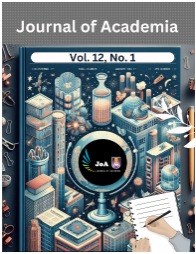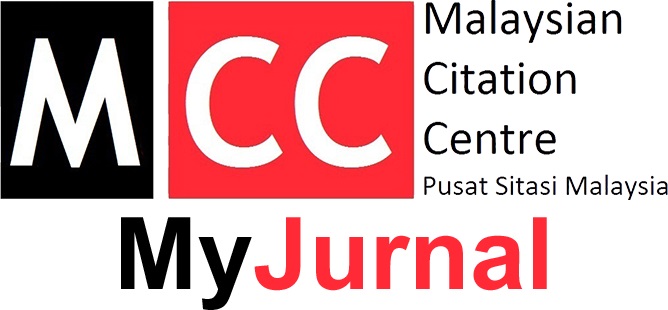ANALYSIS OF STUDENTS' ACCEPTANCE OF ONLINE ASSESSMENT IN AN ACCOUNTING COURSE TOWARDS ACADEMIC INTEGRITY USING TECHNOLOGY ACCEPTANCE MODEL
Keywords:
Technology Acceptance Model (TAM), online assessment, academic integrity, accountingAbstract
Globally, the education industry has been disrupted by COVID-19's unprecedented challenge. Most countries, including Malaysia, have replaced face-to-face teaching and learning processes with technology via e-learning. As such, the adoption of online assessment methods was essential, which has revolutionised the way students are evaluated in academic environments. Concurrently, the issue of academic integrity has become a significant concern due to the ease of online access. Hence, utilising the technology acceptance model (TAM), this paper investigated perceptions of non-accounting students who enrol in accounting courses engaged in online assessments towards academic integrity. A Likert scale survey was being utilised, and the hypotheses were tested using SmartPLS on a sample of 150 students. The results show that the proposed TAM model could predict the acceptance of students using online assessment, which positively affects their academic integrity.
References
Adedoyin, O. B., & Soykan, E. (2023). Covid-19 pandemic and online learning: the challenges and opportunities. Interactive Learning Environments, 31(2), 863–875.
Akhter, T. (2022). The influence of online assessment on secondary students in Bangladesh: consequences and challenges, Doctoral dissertation, Brac University.
Alhumsi, M. H., & Alshaye, R. A. (2021). Applying technology acceptance model to gauge university students' perceptions of using blackboard in learning academic writing. Knowledge Management & E-Learning, 13(3), 316–333.
Ali, I., Narayan, A. K., & Sharma, U. (2021). Adapting to COVID-19 disruptions: Student engagement in online learning of accounting. Accounting Research Journal, 34(3), 261–269.
Ali, L., & Dmour, N. A. H. H. A. (2021). The shift to online assessment due to COVID-19: An empirical study of university students, behaviour and performance, in the region of UAE. International Journal of Information and Education Technology, 11(5), 220–228.
Alruwais, N., Wills, G., & Wald, M. (2018). Advantages and challenges of using e-assessment. International Journal of Information and Education Technology, 8(1), 34–37.
Alsalhi, N. R., Qusef, A. D., Al-Qatawneh, S. S., & Eltahir, M. E. (2022). Students’ perspective on online assessment during the COVID-19 pandemic in higher education institutions. Information Sciences Letters, 11(1), 37–46.
Bagozzi, R. P., & Yi, Y. (1988). On the evaluation of structural equation models. Journal of The Academy of Marketing Science, 16, 74–94.
Chen, C., Landa, S., Padilla, A., & Yur-Austin, J. (2021). Learners' experience and needs in online environments: adopting agility in teaching. Journal of Research in Innovative Teaching & Learning, 14(1), 18–31.
Chin, W. W. (1998). The partial least squares approach to structural equation modeling. Modern Methods for Business Research, 295(2), 295–336.
Cohen, J. (1992). Quantitative methods in psychology: A power primer. Psychological Bulletin, 112, 1155–1159.
Davis, F. D. (1989). Perceived usefulness, perceived ease of use, and user acceptance of information technology. MIS Quarterly, 319–340.
Dizon, G. (2016). Measuring Japanese EFL Student Perceptions of Internet-Based Tests with the Technology Acceptance Model. The Electronic Journal for English as a Second Language, 20(2), 1–17.
Elzainy, A., El Sadik, A., & Al Abdulmonem, W. (2020). Experience of e-learning and online assessment during the COVID-19 pandemic at the College of Medicine, Qassim University. Journal of Taibah University Medical Sciences, 15(6), 456–462.
Fatima, S. S., Idrees, R., Jabeen, K., Sabzwari, S., & Khan, S. (2021). Online assessment in undergraduate medical education: Challenges and solutions from a LMIC university. Pakistan Journal of Medical Sciences, 37(4), 945.
Hair, J. F., Anderson, R. E., Babin, B. J., & Black, W. C. (2010). Multivariate data analysis: A global perspective (7th ed.), Pearson Education.
Hair, J. F., Hult, T., Ringle, C. M., & Sarstedt, M. (2022). A primer on partial least squares structural equation modeling (PLS-SEM) (3rd ed.). Sage publications.
Hair, J. F., Risher, J. J., Sarstedt, M., & Ringle, C. M. (2019). When to use and how to report the results of PLS-SEM. European Business Review, 31(1), 2–24.
Han, J. H., & Sa, H. J. (2022). Acceptance of and satisfaction with online educational classes through the technology acceptance model (TAM): The COVID-19 situation in Korea. Asia Pacific Education Review, 23(3), 403–415.
Henseler, J., Ringle, C. M., & Sarstedt, M. (2015). A new criterion for assessing discriminant validity in variance-based structural equation modeling. Journal of The Academy of Marketing Science, 43, 115–135.
Iskandar, N., Ganesan, N., & Maulana, N. S. E. A. (2021). Students’ perception towards the usage of online assessment in University Putra Malaysia amidst COVID-19 pandemic. Journal of Research in Humanities and Social Science, 9(2), 9–16.
Lazim, C. S. L. M., Ismail, N. D. B., & Tazilah, M. D. A. K. (2021). Application of technology acceptance model (TAM) towards online learning during covid-19 pandemic: Accounting students’ perspective. International Journal of Business, Economics and Law, 24(1), 13–20.
Lloyd, C. B., & Abbey, A. (2009). Teaching elementary accounting to non-accounting majors. American Journal of Business Education, 2(2), 23–30.
Lois, P., Tabouratzi, E., & Makrygiannakis, G. (2017). Accounting Information Systems course: Perceptions of accounting and non-accounting students. EuroMed Journal of Business, 12(3), 258–268.
Mok, K. H., Xiong, W., & Bin Aedy Rahman, H. N. (2021). COVID-19 pandemic’s disruption on university teaching and learning and competence cultivation: Student evaluation of online learning experiences in Hong Kong. International Journal of Chinese Education, 10(1), 221258682110070.
Mushtaha, E., Dabous, S. A., Alsyouf, I., Ahmed, A., & Abdraboh, N. R. (2022). The challenges and opportunities of online learning and teaching at engineering and theoretical colleges during the pandemic. Ain Shams Engineering Journal, 13(6), 101770.
Mustafa, A. S., & Garcia, M. B. (2021, November). Theories integrated with technology acceptance model (TAM) in online learning acceptance and continuance intention: A systematic review. In 2021 1st Conference on Online Teaching For Mobile Education (OT4ME) (pp. 68–72). IEEE.
Nunnally, J.C. & Bernstein, I.H. (1994). The Assessment of Reliability. Psychometric Theory, 3, 248–292.
Peytcheva-Forsyth, R., Aleksieva, L., & Yovkova, B. (2018). The impact of prior experience of e-learning and e-assessment on students’and teachers’approaches to the use of a student authentication and authorship checking system. In EDULEARN18 Proceedings (pp. 2311–2321). IATED.
Purwanto, A. (2021). Partial least squares structural squation modeling (PLS-SEM) analysis for social and management research: a literature review. Journal of Industrial Engineering & Management Research, 2(4),114–123.
Ramayah, T., Cheah, J., Chuah, F., Ting, H., & Memon, M. A. (2018). Partial least squares structural equation modeling (PLS-SEM) using SmartPLS 3.0. An updated guide and practical guide to statistical analysis, Malaysia: Pearson: pp. 978–967.
Reyneke, Y., Shuttleworth, C. C., & Visagie, R. G. (2021). Pivot to online in a post-COVID-19 world: critically applying BSCS 5E to enhance plagiarism awareness of accounting students. Accounting Education, 30(1), 1–21.
Sabrina, F., Azad, S., Sohail, S., & Thakur, S. (2022). Ensuring academic integrity in online assessments: a literature review and recommendations. International Journal of Information and Education Technology, 12(1), 60–70.
Saudagaran, S. M. (1996). The first course in accounting: An innovative approach. Issues in Accounting Education, 11(1), 83.
Semlambo, A., Almasi, K., & Liechuka, Y. (2022). Perceived Usefulness and Ease of Use of Online Examination System: A Case of Institute of Accountancy Arusha. International Journal of Scientific Research and Management, 10(04), 851–861.
Tai, H. T., Liew, Y. P., Lim, L., & Yeow, J. A. (2022). A Study on University Students’ Experiences on Online Assessment During Pandemic. In International Conference on Communication, Language, Education and Social Sciences, Atlantis Press, 266–274.
Valdez, M. T. C. C., & Maderal, L. D. (2021). An Analysis of Students' Perception of Online Assessments and Its Relation to Motivation towards Mathematics Learning. Electronic Journal of E-Learning, 19(5), 416–431.
Verhoef, A. H., & Coetser, Y. M. (2021). Academic integrity of university students during emergency remote online assessment: An exploration of student voices. Transformation in Higher Education 6(0), 1–12.
Zhu, M., & Zhang, Y. (2022). Medical and public health instructors’ perceptions of online teaching: A qualitative study using the Technology Acceptance Model 2. Education and Information Technologies, 27(2), 2385–2405.
Downloads
Published
Issue
Section
License
Copyright (c) 2024 Journal of Academia

This work is licensed under a Creative Commons Attribution-NonCommercial-NoDerivatives 4.0 International License.












